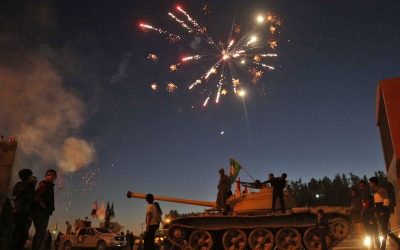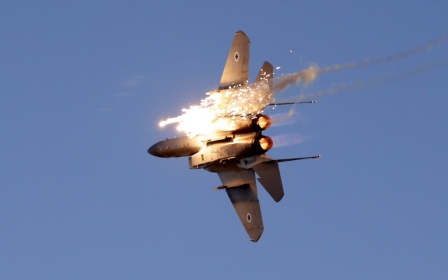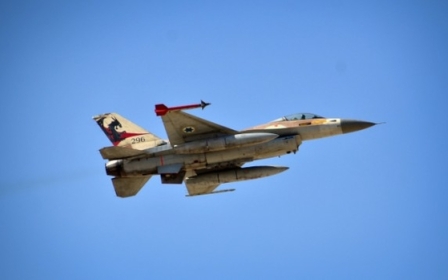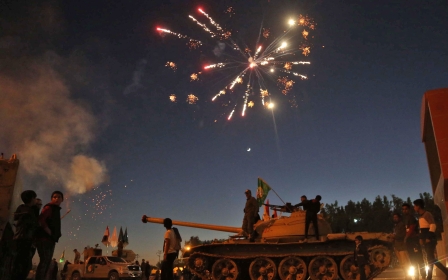Israel, Iran and Lebanon send warnings after drones downed and air strikes
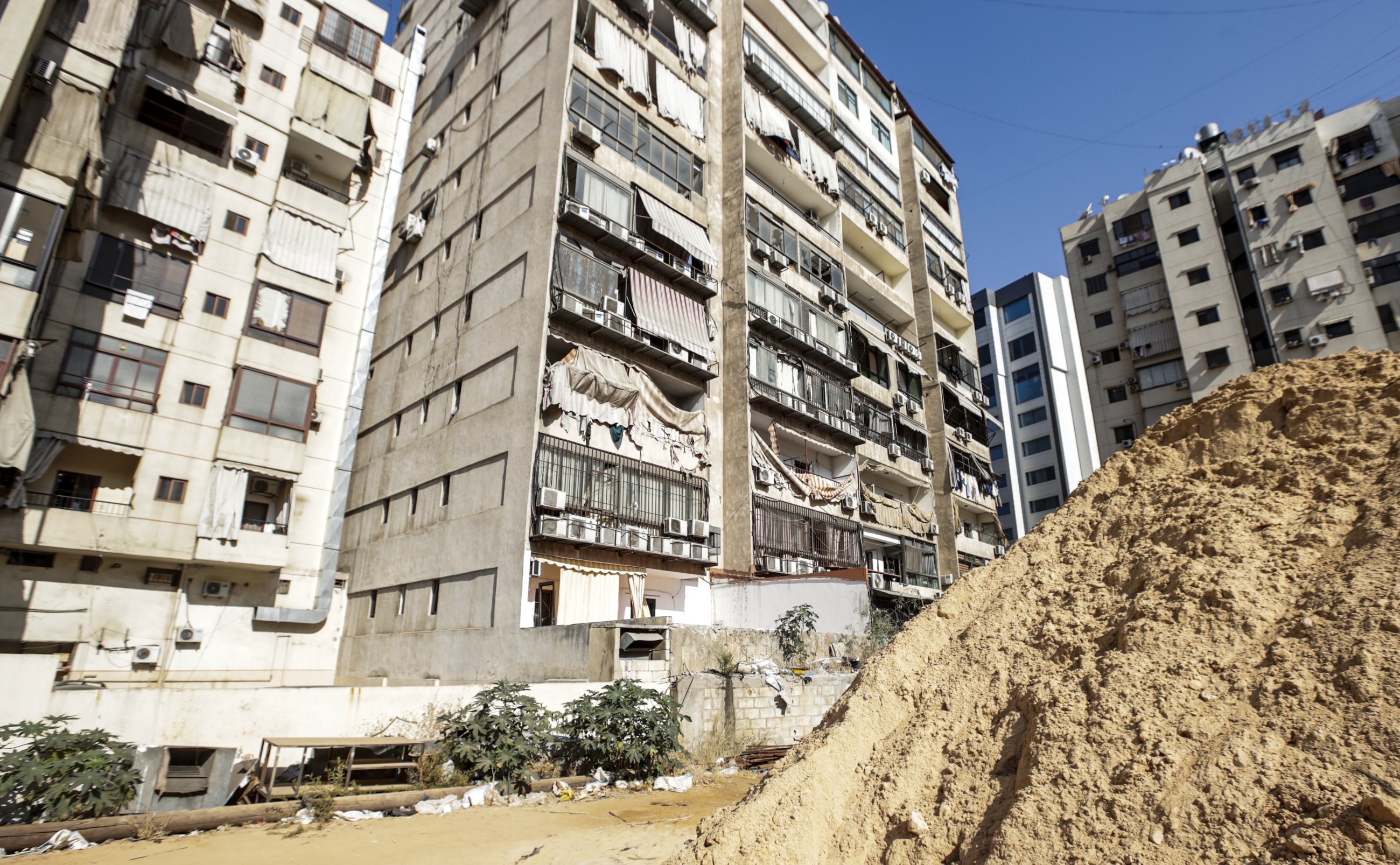
Israeli air strikes in Syria and the downing of drones over Beirut set off a volley of warnings and denials between Israel, Iran and Lebanon on Sunday.
The Lebanese army said two Israeli drones came down over a Hezbollah stronghold in south Beirut, hours after Israel said it had struck Iranian bases in Syria on Saturday.
"This new aggression ... forms a threat to regional stability and an attempt to push the situation towards more tension," Lebanese Prime Minister Saad Hariri said in a statement.
A Hezbollah spokesperson had earlier stated that a drone rigged with explosives had caused damage to its media centre.
The drone incident came after the Israeli air force said it had struck in Syria to prevent an Iranian force from launching a "killer" drone attack.
New MEE newsletter: Jerusalem Dispatch
Sign up to get the latest insights and analysis on Israel-Palestine, alongside Turkey Unpacked and other MEE newsletters
While Israel operates regularly in Syria, it rarely acknowledges its actions so swiftly.
"Iran has no immunity anywhere. Our forces operate in every sector against the Iranian aggression," Israeli Prime Minister Benjamin Netanyahu said on Twitter. "If someone rises up to kill you, kill him first."
The UK-based Syrian Observatory for Human Rights said Israeli strikes in Damascus had killed two Hezbollah fighters and one Iranian.
Iran is helping Syrian President Bashar al-Assad in the eight-year Syria war. Russia, which is also aiding Assad, has largely turned a blind eye to the Israeli air strikes. Netanyahu spoke with Russian President Vladimir Putin on Friday, the Israeli leader's office said.
In a briefing to reporters, Israeli military spokesman Jonathan Conricus said that late on Saturday the air force "was able to thwart an Iranian attempt led by the Quds force from Syria to conduct an attack on Israeli targets in northern Israel using killer drones".
According to Conricus, the Israeli attack took place in Aqraba, southeast of Damascus, and targeted "a number of terror targets and military facilities belonging to the Quds force as well as Shia militias".
He also noted that while Iranian forces had launched rockets and missiles at Israel from Syria three times during 2018, the use of "kamikaze" drones set to explode on their targets was a new and "different tactic".
The army had on Thursday prevented an earlier attempt to launch the drone attack, Conricus said, without providing further details.
"The threat was significant, and these killer drones were capable of striking targets with significant capacity," he said.
The Syrian army said in a statement that "the majority of the Israeli missiles were destroyed before reaching their targets". Still, Conricus said the impact of the Israeli strikes was "significant," Reuters reported.
A senior commander in Iran's Revolutionary Guards denied that Iranian targets had been hit late on Saturday, the semi-official ILNA news agency reported.
"This is a lie and not true. Israel and the United States do not have the power to attack Iran's various centres, and our [military] advisory centres have not been harmed," said Revolutionary Guards Major General Mohsen Rezaei.
A Syrian military source quoted by official Sana news agency said that "anti-aircraft defences detected enemy targets from Golan heading towards the area around Damascus".
"The aggression was immediately confronted and so far the majority of the enemy Israeli missiles have been destroyed before reaching their targets," the source added.
An AFP correspondent in Damascus heard several large explosions before Sana announced the defensive action.
"The aggression is still going on and the air defence is able to counter the targets, dropping most of them" in the south of the country, the Sana agency said early on Sunday.
Since the beginning of the war in Syria in 2011, Israel has conducted hundreds of strikes in Syria, most of them against what it says are Iranian and Hezbollah targets.
Hezbollah is a Lebanese Shia group that also supports Assad.
Israel says it is determined to prevent its arch-foe Iran from entrenching itself militarily in Syria.
Middle East Eye delivers independent and unrivalled coverage and analysis of the Middle East, North Africa and beyond. To learn more about republishing this content and the associated fees, please fill out this form. More about MEE can be found here.


